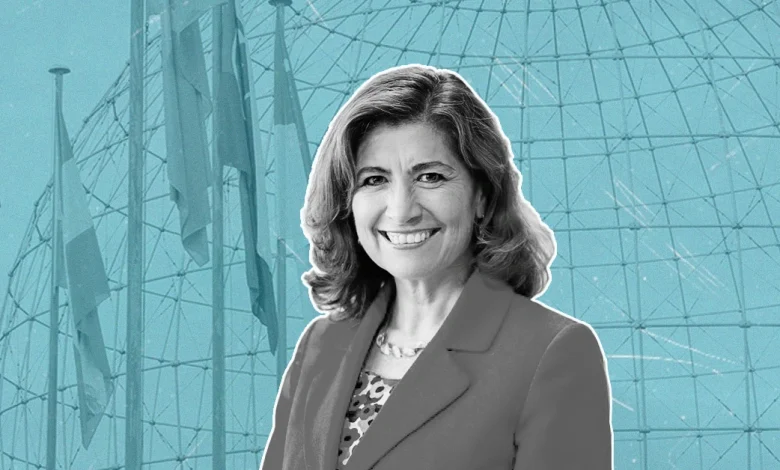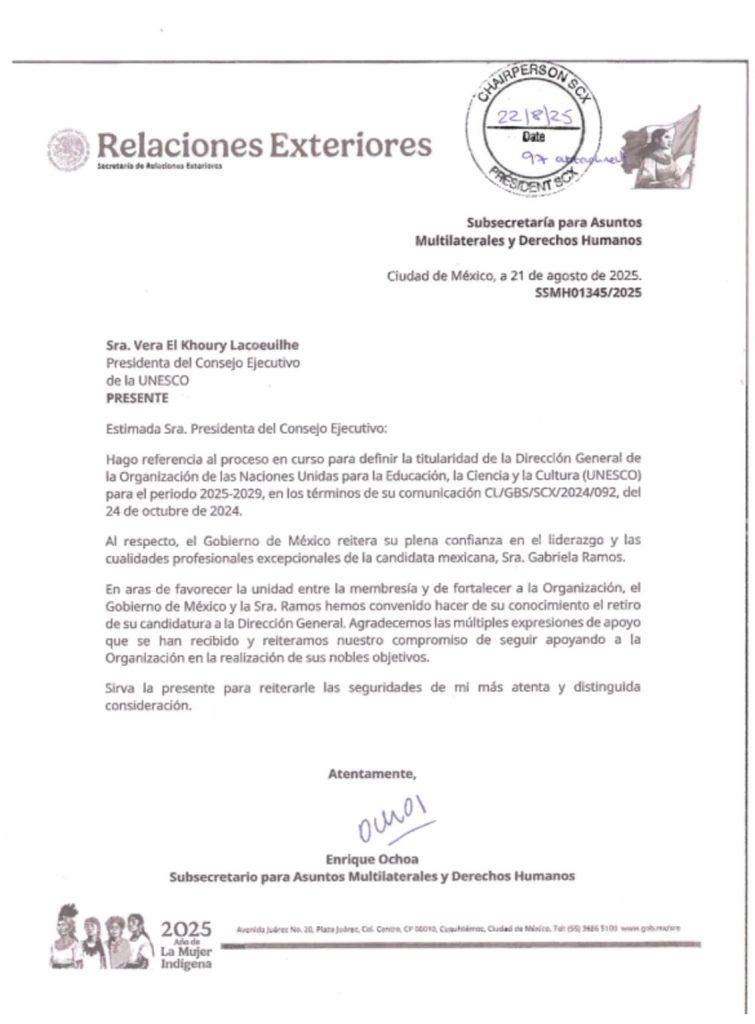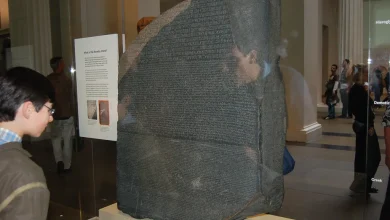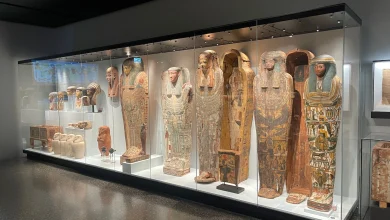
After the withdrawal of the Mexican candidate, Al-Anani is close to leading UNESCO
The Mexican candidate for the position of Director-General of UNESCO, Gabriela Ramos, officially announced her withdrawal from the race in a post on LinkedIn. Observers believe that Ramos’ withdrawal was not a personal decision, but rather the result of internal complications and careful calculations surrounding the work of the troubled international organization. This makes Egyptian candidate Khaled El-Anany the frontrunner to lead the organization, backed by broad regional and international alliances, which has strengthened his position following the withdrawal of his main rival.
Background to the withdrawal
Ramos’ withdrawal was not surprising, as the reasons stated in her letter, “to promote unity among members and strengthen the organization,” served as a diplomatic cover for deeper reasons. Although she did not announce the real reasons behind her withdrawal, what has happened in recent months reveals many details. An internal investigation was conducted against her at UNESCO regarding allegations of misconduct, which greatly weakened her position. Her progressive agenda, which focused on issues such as artificial intelligence ethics and gender equality, also made her candidacy a source of division in a global system experiencing significant tensions. This was especially true with the withdrawal of the United States from the organization under the administration of US President Donald Trump. Her candidacy was a source of division in a global system experiencing significant tensions, especially with the withdrawal of the United States from the organization under President Donald Trump.
Estimates suggest that the withdrawal may have been a strategic diplomatic compromise to avoid a potential loss and ensure Mexico’s continued influence by uniting behind a candidate with a better chance of winning.
Corruption report
According to the Inner City Initiative, an organization dedicated to exposing corruption and human rights issues around the world, Ramos’ withdrawal came after an internal investigation by UNESCO’s Internal Oversight Service. According to the organization’s official report, the findings found that Ramos had engaged in “misconduct and harassment” against its employees. The current Director-General, Audrey Azoulay, protected Ramos and deliberately delayed the release of the report’s findings until after the deadline for nominations, allowing her to compete.
This report, which was made available to the Mexican authorities, revealed “little chance of success” in the race, prompting Mexico to decide to withdraw to avoid a complicated situation.
The beginning of the end
The root of the problem lies in the fact that Ramos, from the social and health services sector, was given a mandate by UNESCO Director-General Audrey Azoulay to exercise complete control over staff. This included intimidation and harassment to force them into fear and obedience. For years, Azoulay took no action against her and continued to protect her from complaints by her staff to the Ethics Division and the Internal Oversight Services Office.
Paving the way for dismissal from the organization
However, in January 2024, the Internal Oversight Services Office launched a formal investigation against Gabriela Ramos for misconduct and harassment. The Internal Oversight Services completed its report (2024/02) in December 2024 and submitted it to Director-General Audrey Azoulay for the necessary administrative measures to be taken. However, Director-General Azoulay did not review the report, clearly waiting for the March 15, 2025 deadline to pass. This was to allow Gabriela Ramos to run for her position as Director-General of UNESCO. This was despite her knowledge that the Internal Oversight Services report was clear about Gabriela Ramos’ proven harassment practices. This should have paved the way for her dismissal from the international organization for misconduct.
Here came the surprise: according to international reports, Ramos withdrew after negotiations by Mexico and Egypt at the United Nations in New York regarding mutual support. Mexican and international reports indicate that Mexico’s withdrawal from the race was not a failure but part of a pragmatic political deal. This was to ensure its continued influence and avoid a potential confrontation with El-Anany, who was gaining increasing support.
In a letter dated August 21, Enrique Ochoa, a Mexican economist, politician, and lawyer, formally notified the chair of UNESCO’s Executive Board of this withdrawal. A striking phrase in the resignation letter was “in order to promote unity among members and strengthen the organization.” This suggests that the Mexican authorities may have finally realized that the organization is being strengthened and will be better off without Gabriela Ramos.

Ramos’ letter
In her letter, Ramos said: “With a deep sense of gratitude and responsibility, I announce the withdrawal of my candidacy for the position of Director-General of UNESCO. This decision was made in close coordination with the Mexican government. It was concluded that this moment calls for unity and solidarity, as UNESCO—and the United Nations system—faces one of the most complex periods since its founding.”
She added that representing Mexico as its candidate was one of the greatest honors of her career. “Reaching out to leaders and communities around the world, in collaboration with the Mexican diplomatic corps and all those who share UNESCO’s vision of inclusiveness, innovation, and impact, has been both an honor and an inspiration.”
Ramos also expressed her appreciation to the countries that supported her, as well as to the institutions, colleagues, and friends around the world who made this journey possible. She added: “Over the past five years as Assistant Director-General, I have witnessed the transformative power of UNESCO. From pioneering agreements on the ethics of artificial intelligence and neurotechnology, to strengthening the links between science and policy, protecting culture and education in crises, promoting culture as a public good, advancing action against racism and discrimination, and contributing to better environmental stewardship. I am therefore confident that the organization will continue to overcome polarization and serve as a bridge between nations through its unique mandate.
I wish the candidate who will be elected every success. I reaffirm my commitment to continue supporting UNESCO’s mission and building a stronger and more effective multilateral system.
Candidates’ chances
The race for the UNESCO chair is now limited to the remaining candidates, Khaled El-Anany of Egypt and Firmin Edouard Matoko of Congo (who is also expected to withdraw), both of whom have professional backgrounds that give them different strengths.
Matoko is UNESCO’s Assistant Director-General for Africa and External Relations. His long internal experience within the organization is one of his main strengths, making him a choice that represents continuity and stability in the eyes of many member states and staff within UNESCO.
Khaled El-Anany’s chances
Khaled El-Anany, former Egyptian Minister of Tourism and Antiquities, enjoys significant Arab support following his endorsement by the Arab Foreign Ministers Council in September 2023. His stated vision focuses on making UNESCO “an organization for all” through an inclusive approach, and he has conducted an active diplomatic campaign that has included visits to many countries around the world. El-Anany is considered the frontrunner to win the position after Gabriela Ramos withdrew. This preference is based not only on personal qualifications, but also on the building of a successful strategic alliance, as Al-Anani has secured broad support that transcends traditional regional boundaries. In addition to the backing of the Arab League and the African Union, he has received public support from influential global powers.
Reports indicate explicit support from major European countries such as France and Spain, as well as Russia and Asian countries. This pattern of mobilizing support from diverse political and geographical blocs indicates that his campaign was based primarily on diplomacy that transcended traditional geopolitical divisions in the world. This broad alliance gives him a decisive advantage, making him a consensus candidate capable of uniting diverse voices within the organization.




